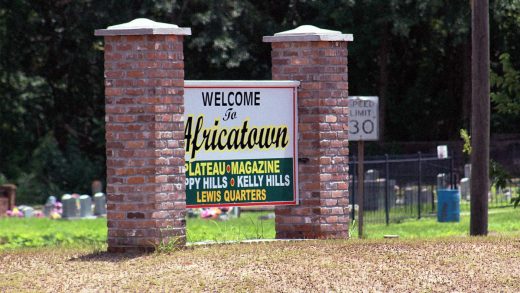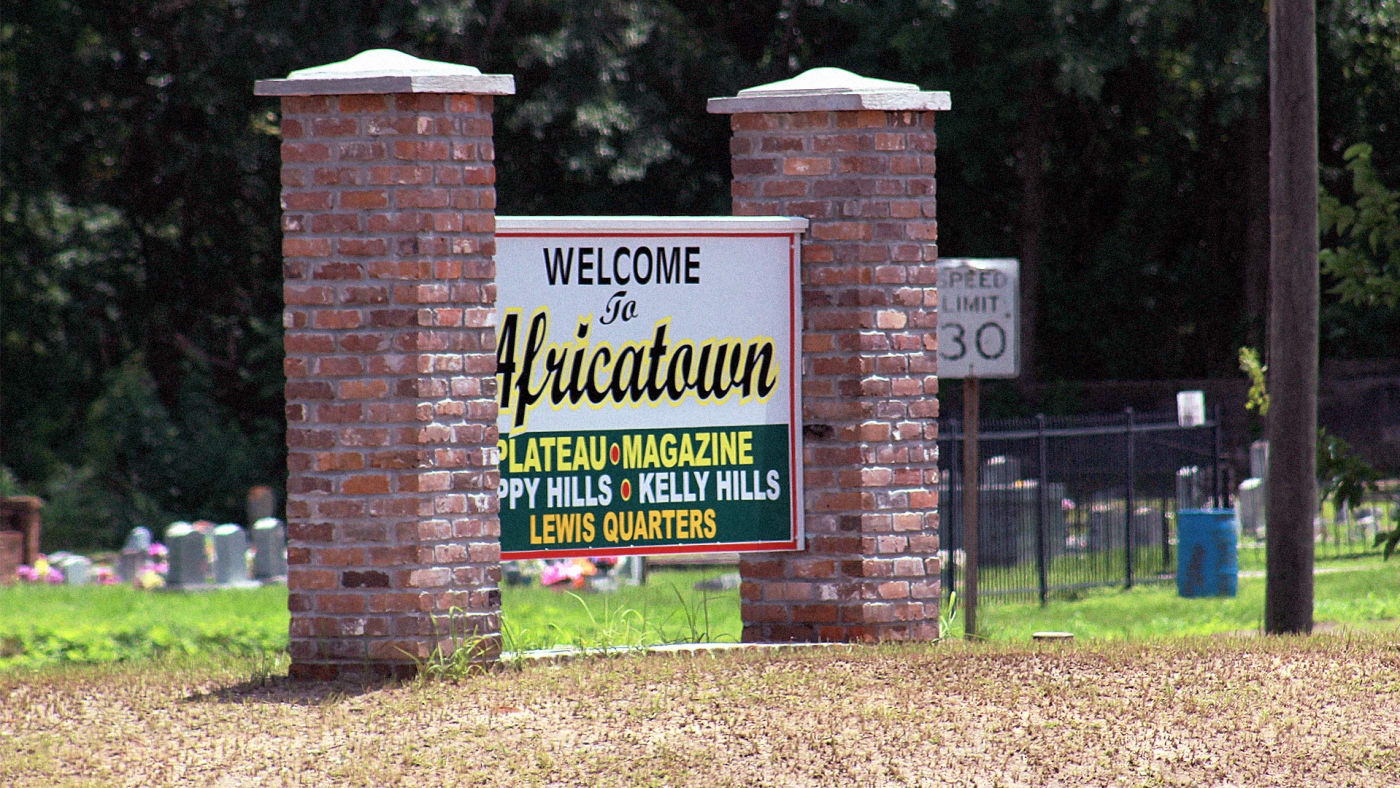This polluted neighborhood shows the damage caused by environmental racism
It began as a beacon of freedom, founded by those aboard the last slave ship to reach the United States. For decades, it stood as a sanctuary of African culture, but today the small community on the outskirts of Mobile, Alabama, is struggling to stay alive.
In the 1940s, industry moved to Africatown, as it’s called, and with it came a steady stream of toxic pollution. When those businesses eventually closed their doors, families picked up and moved elsewhere looking for work. The people who stayed behind were left to clean up the mess. Many are still coping with the sickness wrought by years of contamination.
“Africatown, the community here, is really a national treasure. It has such historical value. However, it’s been plagued by environmental injustices for decades,” said Teresa Bettis, executive director for the Center for Fair Housing, at an event hosted by the Freedom to Breathe Tour, a cross-country road trip calling attention to the ways that pollution targets communities of color. Organizers drew inspiration from the Freedom Riders of the Civil Rights Movement, who rode buses across the South to campaign against segregation. It’s fitting that the tour would stop in Africatown, a powerful symbol of black independence.
The men and women who founded Africatown were smuggled across the Atlantic in 1860, decades after the federal government had banned the import of enslaved people. After the Civil War, the newly freed West Africans set out to form a community for themselves. Better acquainted with freedom in the Old World than bondage in the New, they determined their village would be governed by old African traditions. Today, it’s one of the few places where African Americans–including black icons such as Hank Aaron and Questlove–can trace their lineage back to the motherland.
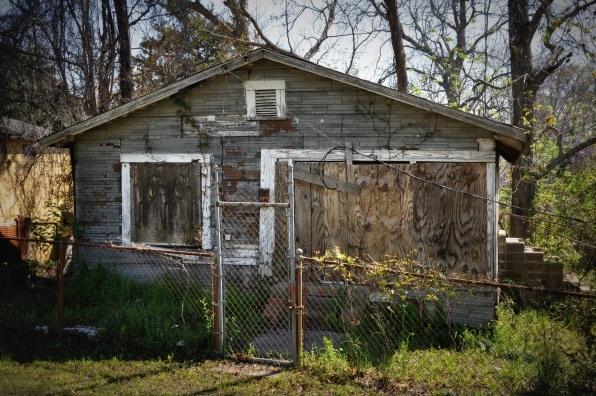
While the community of 2,000 began as a refuge for black families, it has since gained notoriety for its rampant pollution, the toxic refuse of petrochemical plants, factories, and paper mills. While these businesses provided jobs to the residents of Africatown–who once numbered close to 15,000–they also inflicted considerable harm.
“The odor, at times, was horrendous,” says Ruth Ballard, who was born and raised in Africatown. She said that facilities owned by the International Paper Company and Stock Paper Company covered the town in ash. “Even if you were in the house–doors closed, windows down–the odor was terrible,” she says. “It would be overcast, and you could just see particles coming out of the sky. If you had washed your clothes, you had better run and take them in.”
Ballard says the pollution corroded roofs and rusted cars. “International had car washes open for the community. You could go wash your car at any time. Stock Paper Company? Car washes open where you could go wash your cars,” Ballard says. Locals now believe the chemicals that ate away at their cars also fueled an epidemic of cancer.
“A lot of people who were born, say, after 1945 are really sick,” says Joe Womack, a longtime resident of Africatown. “They’re really not living much past the age of 65. Of course, we know that 1945 is when the industry expanded here with the paper mills.” While there exists no data on cancer rates in Africatown, stories abound of men and women struck down by the disease. Ballard, for instance, lost three of her four siblings to cancer. Both she and her one remaining sibling have also battled the disease.
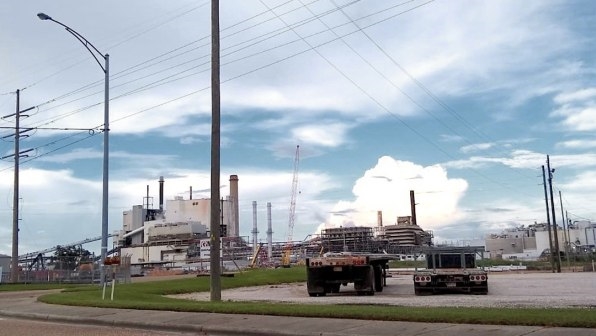
“My brother, who is four years older than I, and myself are twice survivors of cancer,” she says. “Now, I cannot definitely say that it was the result of the pollution from International Paper Company or Stock Paper Company. However, there is no history of cancer in my family.”
Air pollution has been shown to cause lung cancer and has been linked to other forms of cancer. It has also been shown to trigger heart attacks and strokes, aggravate asthma, and contribute to other lung ailments, including pneumonia. Even low levels of contamination can put children and the elderly at significant risk. In places like Africatown, just going outside can be hazardous.
In 2017, residents brought suit against International Paper, alleging its plant produced dangerous levels of toxic compounds known to cause cancer. It further asserts that International Paper failed to clean up the pollution before closing the plant in 2000. The closure came as a response to stricter environmental protections passed by the Clinton administration. Faced with the choice of cutting pollution or shutting their doors, both International Paper Company and Scott Paper Company opted for the latter. When these companies skipped town, locals say, they took the jobs and left the contamination the behind.
“Stock Paper Company left, so that took jobs. International left. That took jobs,” Ballard says. At one point, she explains, Africatown was a thriving community with movie theaters, doctors’ offices, and supermarkets. “We did not have to leave the area for anything,” she says. But, as people left to find work, many of those businesses shut down.
“Big industry has come in. Big industry has left, but without really putting any real investment into the community,” Bettis says. “They’ve made their profits and kind of moved on.” Residents are hoping for a victory in the lawsuit, which could yield money for cleanup projects and medical care. If successful, it wouldn’t be Africatown’s first environmental win. A few years ago, residents thwarted a plan to build several dozen oil storage tanks around the community. Locals say the fight against pollution is never-ending, and that they must always be vigilant.
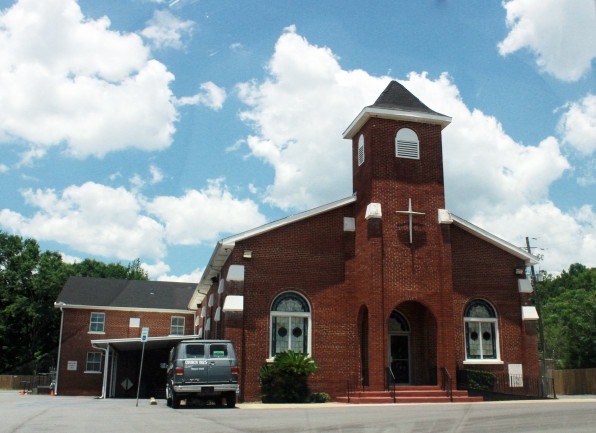
The story of Africatown is hardly unique. Poor communities and communities of color are far more likely than other communities to be contaminated. This, experts say, is because pollution depends in some measure on economic inequality. No person wants to live near a busy highway, factory, or power plant. Families settle in polluted areas because they need work, or because soaring rents and meager wages leave them with few other options. In societies characterized by profound economic inequality, wealthier communities effectively export pollution to poorer communities. In societies where power and money are shared more broadly, few people are so poor that they are forced to live in contaminated areas.
In a 1994 paper, University of Massachusetts economist James K. Boyce argued that “greater inequalities of power and wealth lead, all else equal, to more environmental degradation.” In a follow-up study published in 1999, he found that U.S. states with less economic inequality also had less pollution, writing, “The broader implication of our analysis is that democratization–in the broad sense of movement toward a more equitable distribution of power–can foster environmental protection.” Subsequent studies supported this conclusion, though, to residents of Africatown, the findings feel intuitive.
“When industry began to move into the area wholesale–really, the residents back then, they barely had the right to vote. They had no voice, really,” Womack says. “Industry just did what they wanted to do. And a lot of them think that they can still do that.”
Jeremy Deaton writes for Nexus Media, a syndicated newswire covering climate, energy, policy, art, and culture. You can follow him @deaton_jeremy. Josh Landis contributed to this report.
(35)

